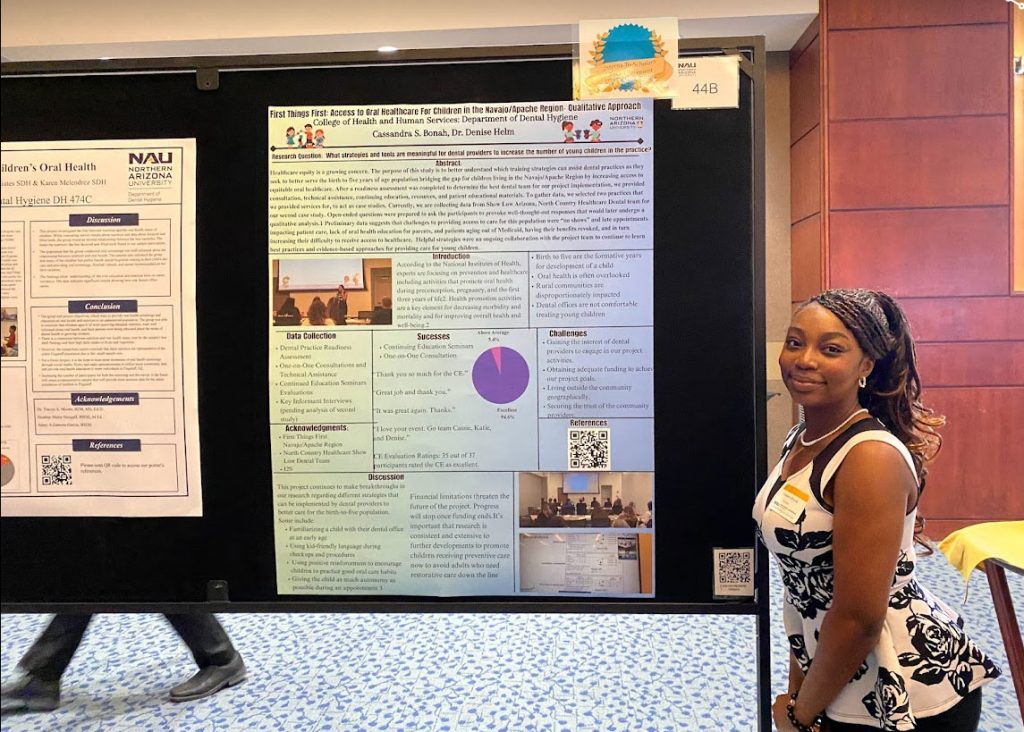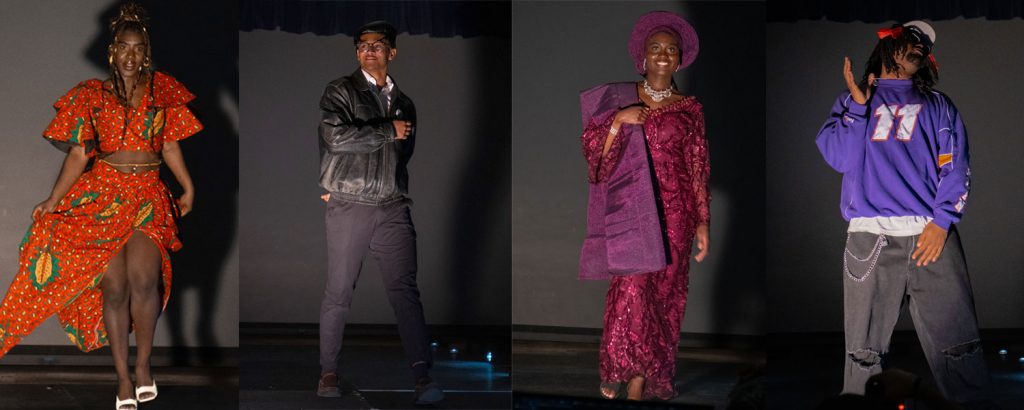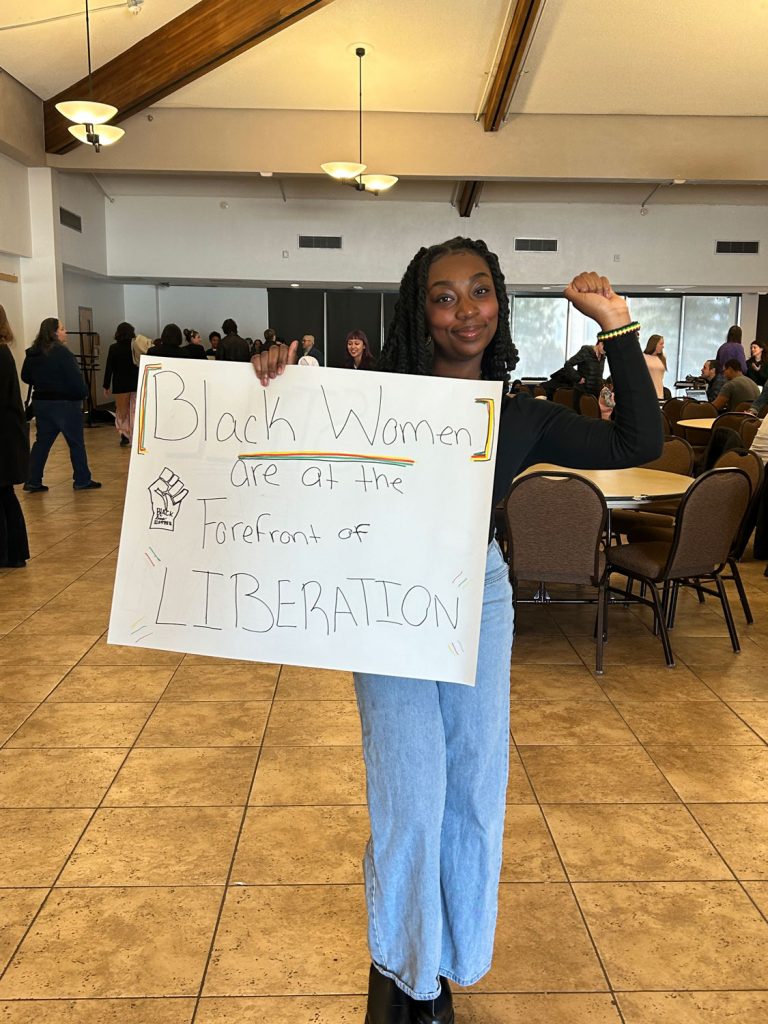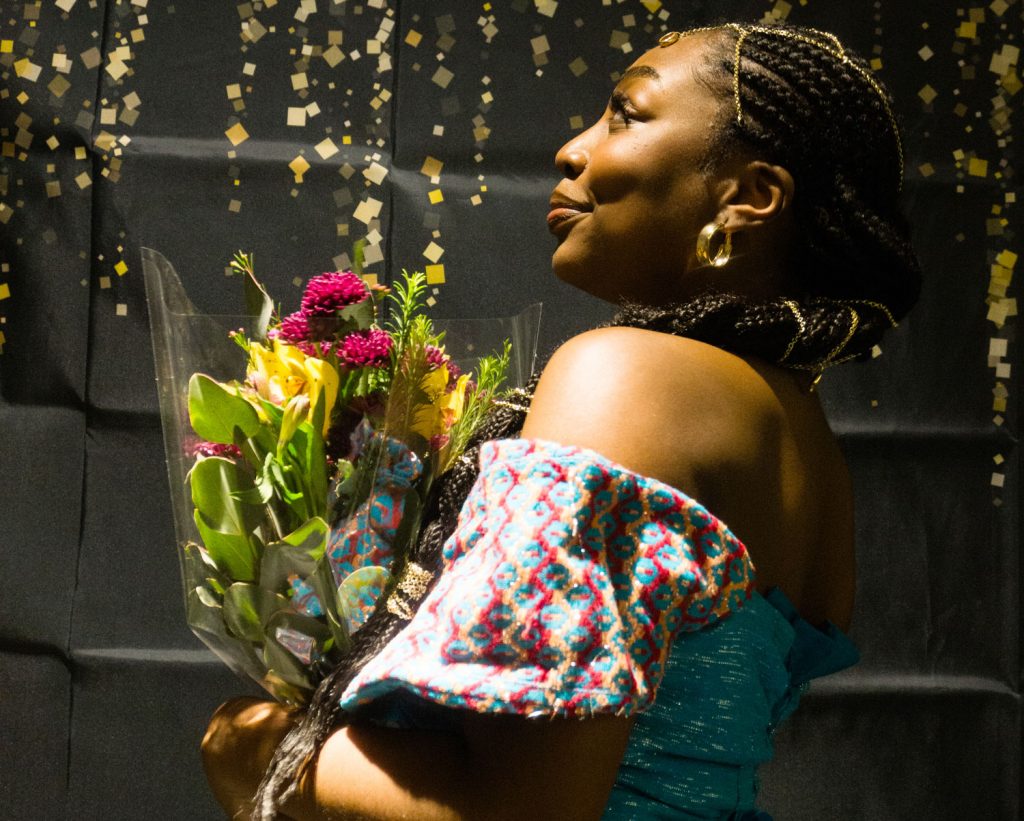Honors College senior Cassie Bonah aspires to help people by becoming a doctor—but while at NAU, she committed to helping people in a different way. The daughter of Ghanaian immigrants, Bonah came to NAU in the midst of the pandemic, when it was tough to forge ties with others who looked like her. As the world reopened, the biomedical sciences major resolved to bring Black students and employees together by organizing a fashion show that celebrated Black cultures and traditions from around the world. We asked Bonah about what it was like to organize such a large event, what she learned and what she hopes to accomplish later in life.
What brought you to NAU?
I was born and raised in Arizona. Both of my parents are immigrants from Ghana, and I’m a first-generation college student. College seemed very big and scary to me, so I decided to go to NAU because my cousin went there. It was comforting to have that little family connection.
I’m so glad I chose NAU, because I’ve done a lot of things I don’t think I would have been able to do elsewhere. Where I came from, I had to fight to get learning experience in the foundational sciences. But despite my limited background, people at NAU have welcomed me into research projects I never thought I’d be able to be part of.

I’ve always been interested in the study of anatomy and physiology. There are pictures of me, little baby Cassie, with a lab coat on and a stethoscope around my neck. I’d pull out that stethoscope every chance I got and use it on my stuffed animals. Whenever I went to a doctor’s office, I would get excited and read all the posters on the wall.
What kept your dream of becoming a doctor alive?
During my freshman year, I traveled to Ghana and got stuck there because of the pandemic. At the time, I was debating whether to major in social sciences or biomed. Ghana’s challenge wasn’t that it had a high number of cases, it was that people who live there don’t have access to a lot of the basic things they need to stay healthy, like clean drinking water and hand sanitizer. I realized that even though I was in a much more privileged position than a lot of Ghanaians, my chances of recovering weren’t high if I couldn’t leave the country. Reflecting on that made me think: “I want to make a change. I want to go into healthcare.”
Tell us about the Black Fashion Show you organized for your Honors College capstone project and how you came up with it.
Starting college during a pandemic felt very isolating, especially as a Black first-generation student. I remember thinking, I don’t want the Black students who come after me to feel the same way I felt my freshman year. So during my sophomore year, I became a community assistant in my residence hall, and I made sure my bulletin boards represented African American communities and culture. I wanted to bring that intention into everything I did at NAU, including my honors capstone. My foundational idea was to showcase the diversity of cultural attire, highlighting all the different identities in the Black diaspora through fashion. My goal was to connect Black students and employees on campus with non-Black students and employees.

What does it take to put together a fashion show?
I had to start by doing a lot of research and talking to a lot of people. The African diaspora is huge; there are so many different clothing traditions in Africa itself, plus there are different Caribbean cultures, South American cultures, African American cultures and so much more. I had to ask people what clothes represented their culture and their history. I did lots of reading to back up what I already knew with facts and statistics.
Coordinating all the moving parts was the most challenging part. I reached out to every single community I’m part of at NAU, and they all delivered. My supervisor in Campus Living, Shawnee Doling Tye, was amazing; they helped fund a good chunk of it and helped execute so many of my ideas. My friends in Black Student Union showed up in a big way by modeling and helping with the logistics. The Northern Arizona Merchandising Association helped me figure out the framework of the whole show in the midst of doing their own fashion show, which was amazing. The NAU First Scholars Program was also a huge help.
What did the Black Fashion Show teach you?
Coordinating all of these things—funding, models, lighting, venues, clothing, food that reflects Black cultures and is prepared properly—taught me that our community is thriving and is so much more resilient than I thought. It also showed me that I’m capable of anything I put my mind to, even things that are way outside of my comfort zone.
When I was putting this together, I was so scared it wouldn’t reach anybody, that it was too specific and not what people were looking for. But after all the positive feedback I received, I realized it’s not only what people are looking for but it’s also something we need more of. We need to keep sharing Black culture with the community. I hope future students in the Honors College and outside of it feel an increased sense of belonging and a drive to keep doing more.

My parents worked very hard when I was a child. They worked different shifts, which meant they usually had to take turns caring for me. But I remember that whenever career day came around at my elementary school, they would both help me get ready, because they knew how important it was to me. They’d dress me in my little lab coat, hand me my stethoscope and help me gather up ointment packets to hand out to the other students. On the way to school, I would quiz them on medical facts, and even though they were probably pretty basic facts, they always seemed so excited that I was excited.
What have you been most proud of recently?
For little baby Cassie, applying to medical school was a fantasy. But now I’m actually able to say, “I’m submitting applications, I’m researching medical schools, I’m studying for the MCAT.” Even though the process is tough, and I’m learning how to accept rejection, I’m still so proud that it’s really happening. I keep telling myself that if baby Cassie was so certain she was going to become a doctor, I can do this for her.
What is your favorite way to spend a day off?
I’m a big reader! Whenever I have a break, I read a chapter or two. I just finished “The Love Songs of W.E.B. Du Bois” by Honorée Fanonne Jeffers, which was such a good read. Now I’m onto “The Thing Around Your Neck” by Chimamanda Ngozi Adichie.
What are three things on your bucket list?
- My 2024 goal is to travel more, even if that just means more trips down to Sedona. Eventually, I’d love to visit all seven wonders of the world.
- My lifelong dream is to write a book. I won’t give that a time frame, because it could take a while to get up the courage—but it’s going to happen!
- I hope to go back to Ghana this year so that I can experience what it’s like to be there in less uncertain times.
Jill Kimball | NAU Communications
(928) 523-2282 | jill.kimball@nau.edu




